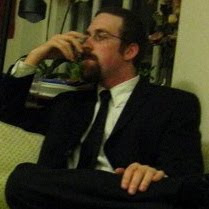As I have shared on t'shuvah this month, I spent some time on Rav Shaul's presentation of the ultimate goal, and starting point, of t'shuvah: dead to sin when alive in Yeshua. It would seem that this is central to all Yeshua-believing life (and it is). Here is whyI feel Elul is the most appropriate time to remind ourselves of this...
Rosh HaShanah is the "head of the year," the new years day of the Jewish civil calendar, the day of "blowing the horn" according to the Torah, and the day of judgment according to our tradition. This is encounter with God as king and judge. All of our deeds, hearts, and minds are examined in the presence of our King. Rosh HaShanah is a yearly enactment of what is both a daily event at one level and a Day yet to come. There is something that is often missed about Rosh HaShanah: God does not only examine our sins...He examines the entirety of our being. We can see Rosh HaShanah as our annual moment to acknowledge his kingship and be set on a trajectory to enter back into the order of this world with renewed confidence in the King we ultimately serve, with a new task for the year ahead. Rosh HaShanah is a day of being equipped with renewed minds and hearts to carry on in the world God has entrusted us. THIS is why t'shuvah is important; so we can operate in a lifestyle that will enable us to steward God's will "on earth as it is in heaven."
Yom Kippur is the "Day of Atonement." It is very much centered around our death as a people: fasting slows our bodily functions, not bathing/shaving/etc. separates us from our daily "lives," Kol Nidrei is very much like a death-bed vow, and Jewish men are buried in the kittel (which is worn on Yom Kippur). We face the fact that we have no Temple, and that really our death is the only thing that can save us from sin. Many Yeshua followers would suggest that Yeshua changes this. I would argue that Yeshua affirms this! Romans 6 makes it very clear that Yeshua does what he does to pave the way for us to do the same. Immersion in him is our own participation in his death. In him, we know our own death will be a transition into resurrection life. This is why it is crucial that Messianic Jews participate fully in Yom Kippur. It is an annual commemoration of our own immersion in Yeshua, and a foretaste of our own great transition from Olam Hazeh into Olam Haba. It humbles us to this great gift, and renews us to live our lives for God more fully in the coming year.
Sukkot/Simchat Torah is the only eight day festival in the Torah, and is called the "season of our joy." I love how prophetically disproportionate the holiday of Joy is to the others. Seven is a number associated with completion, and the order for this world. Eight is a number that represents that which is beyond the confines of the natural order of the world. Eight days of Joy is meant to remind us of eternity in Joy. Yes, both Judgment and Atonement are serious and important. Nevertheless, they all point to an eternity of reconciled living. Sukkot is a reminder that God created belonging for us when we didn't "belong" anywhere yet. It is also a reminder that God commands us to create our own belonging where he will dwell-even in this transient stage of our lives. Sukkot is a reminder that life is eternal without "this life" being eternal.
Elul is meant to be a preparation for the transformation that comes in Tishrei. This is why t'shuvah is so central to Elul. It is our movement(s) toward God that enables us to encounter Him ever more intimately and profoundly.T'Shuvah is the central act that brings us into deeper relationship with Yeshua. I pray that all of us have found this Elul to be transformative. I look forward to blogging again after Simchat Torah is completed.
In the meantime...L'Shanah Tovah...

hi benny,
ReplyDeletethis reflection meant a lot to me and eddie.
thanks.
andy
I'm glad Andy and Eddie!
ReplyDeleteThank you for the feedback
L'Shanah Tovah